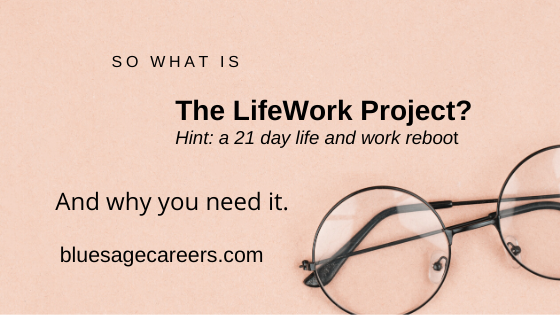Happy New Year from Blue Sage! Ok, so I’m not actually jumping the canyon in that pic. My husband and I were mountain biking in the canyons of Sedona, Arizona a few years ago - which in itself was a challenge for two cyclists from the South Carolina Lowcountry. We bike on flat land at sea level. The altitude in Sedona is 4500 feet. Enough said. My husband swears he will never mountain bike again. I'm still hopeful.
It’s that time of year when everyone is making resolutions for the New Year. I have to admit I’m a sucker for resolutions and goal setting and the beginning of a new year seems the perfect place to begin again. It’s a new year, a new beginning. Anything can happen. Bring it on!
There are two ways to make resolutions. The best advice is to take baby steps. Break your goal down into specific, positive steps that are achievable on a daily or weekly basis. Instead of planning to lose 25 pounds in a month, make a resolution to eat 5-6 servings of vegetables each day or walk 10 miles a week. If you’re on the job hunt, create a goal to make 2 contacts each week (phone calls or emails). Baby steps are a great way to achieve a bigger goal. Sometimes looking at a big goal be overwhelming and can lead to procrastination and resistance. I encourage all my clients to use baby steps to achieve their goals in life and in their careers. Baby steps are a great plan and a great way to move forward toward your goals.
But sometimes… you need to jump the canyon. Last year, I jumped the canyon when I created and developed Blue Sage Career Strategies. I’ve done life and career coaching (and before that individual and family counseling) with other groups for years- but this time I’m completely on my own. My business. My ideas. My success or failure. Jumping the canyon works when you have a plan in place and a parachute at the ready.
I’ve worked with clients who have taken the leap to start their novel (and are now published authors!), with clients who have taken the risk to talk to their boss and change their job for the better, and with others who have left a profession that was sucking them dry to begin a new creative endeavor that makes them happy to go to work in the morning. It’s a leap of faith that can literally change your life. Is it time to take the leap?
Gather your courage, strap on your parachute and jump the canyon that is between you and the life you want to live. Talk to your boss about a promotion. Enroll in grad school. Buy the ticket to Australia. Ask him to marry you. Do the big thing that scares you but will turn your life in a new and better direction.
Today carve out a few minutes, find a quiet place and write down your goals for 2017. It’s a new chapter, a new year, a new beginning. Are baby steps best for you - they always work and are a great way to achieve your goals - or is it time to jump the canyon? Either way, resolve to believe in yourself this year and make those dreams a reality. I believe in you.
Small steps work almost every time. (And this year my resolutions are baby steps!) Jumping the canyon works when you are ready for a big change and have a plan in place. Don’t forget the parachute! I’ll be writing more about moving forward with baby steps and jumping the canyon for this first week of the New Year. If you need a coach to help you jump the canyon or work those baby steps, for the month of January, Blue Sage Career Strategies is offering a 25% discount on all coaching packages.
































It’s time to find a new job. Perhaps you’ve been laid off due to pandemic closures. Maybe you hate your job and need a fresh start. Maybe your industry is feeling the brunt of economic changes and you’re looking for new possibilities. But there’s a global pandemic. Where do you start?
Here are a few things to consider when beginning a job search -during a pandemic.